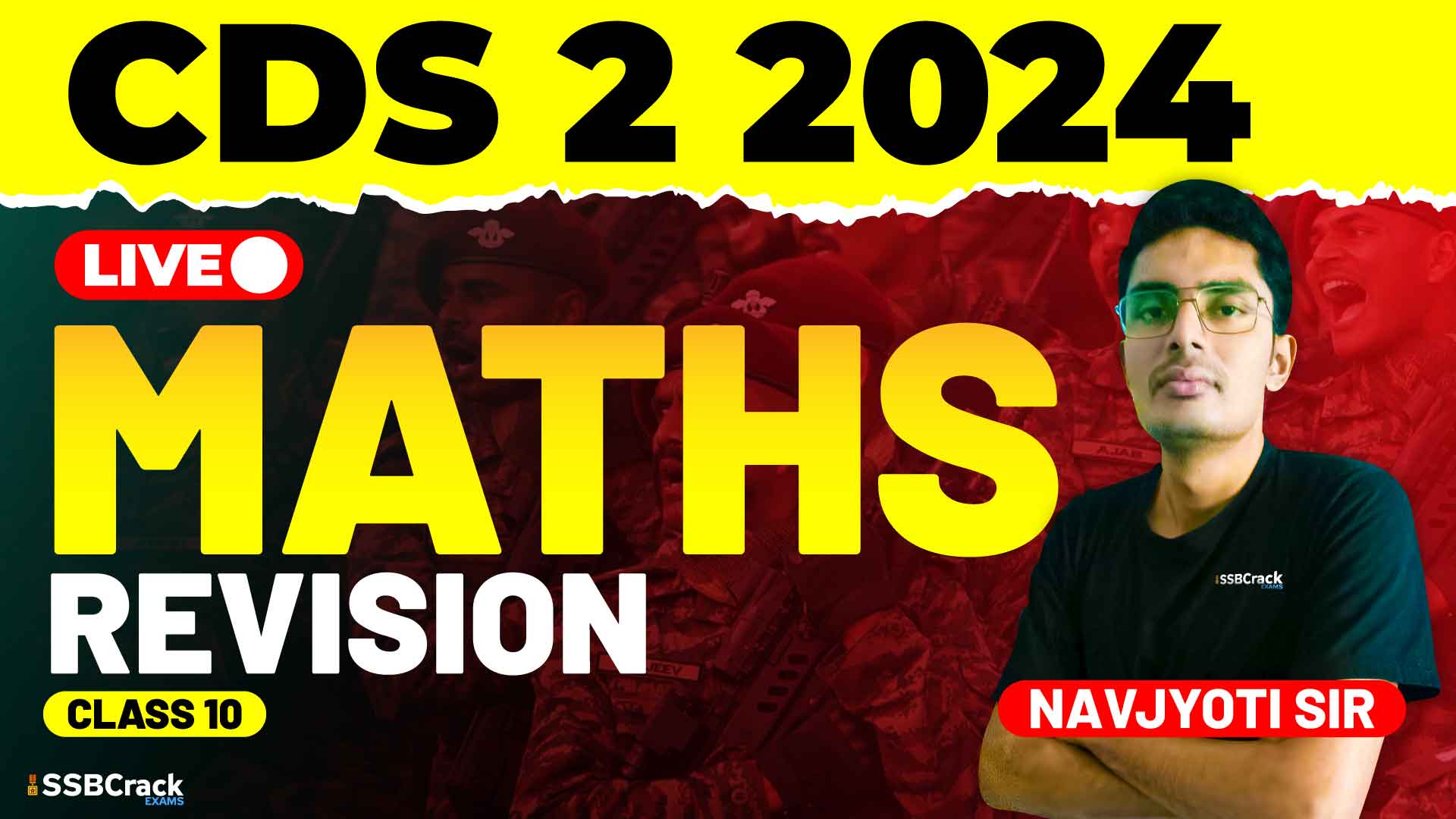In preparation for the Combined Defence Services (CDS) Exam, Elementary Mathematics plays a crucial role. Among the various topics, Number System and Algebra stand out due to their fundamental importance and frequent appearance in the exam. A recent class focused on these topics, highlighting key concepts and engaging in multiple-choice question (MCQ) practice. This article will distill the essence of that class, providing a concise overview of Number System and Algebra, along with strategies to tackle related MCQs effectively in the CDS exam.
Understanding the Number System
The Number System is the backbone of arithmetic, providing the foundation for all mathematical operations. It encompasses various types of numbers, including:
- Natural Numbers: The counting numbers starting from 1.
- Whole Numbers: Natural numbers including zero.
- Integers: Whole numbers and their negative counterparts.
- Rational Numbers: Numbers that can be expressed as a fraction of two integers.
- Irrational Numbers: Numbers that cannot be expressed as a simple fraction, with non-repeating, non-terminating decimals.
- Real Numbers: The set of all rational and irrational numbers.
In the CDS exam, questions often test the understanding of these classifications, along with operations like addition, subtraction, multiplication, and division within these sets. Knowing how to quickly identify and categorize numbers is crucial for solving these problems accurately.
Key Concepts in Algebra
Algebra involves using symbols and letters to represent numbers and express mathematical relationships. The sub-topics covered in the class included:
- Basic Operations and Simplification: Understanding the order of operations (BODMAS), and simplifying expressions using algebraic identities.
- Equations: Working with linear and quadratic equations, and understanding how to solve them.
- Inequalities: Solving and graphing inequalities, and understanding their implications.
- Exponents and Powers: Simplifying expressions involving powers, and solving equations that include exponents.
- Polynomials: Understanding the structure of polynomials, performing operations on them, and solving polynomial equations.
Algebra requires a clear understanding of these concepts to apply them in various problem-solving scenarios. The CDS exam often includes questions that require manipulation of algebraic expressions and solving equations, making these skills vital.
Effective Strategies for Solving MCQs
Given the nature of the CDS exam, where time management is key, employing effective strategies for solving MCQs in Number System and Algebra is essential. Here are some strategies discussed in the class:
- Understand the Question: Read the question carefully to understand what is being asked. Identify whether it’s testing your knowledge of concepts, or your ability to apply them in problem-solving.
- Eliminate Wrong Options: Use the process of elimination to narrow down the choices. Even if you are unsure of the correct answer, eliminating obviously wrong options increases your chances of guessing correctly.
- Simplify the Problem: Break down complex problems into simpler parts. For example, if the problem involves multiple operations, simplify the expression step by step to avoid mistakes.
- Substitute Values: In algebraic MCQs, substituting values for variables can sometimes help in verifying the correctness of an equation or expression. This is particularly useful when dealing with equations or inequalities.
- Check for Patterns: Especially in the Number System, look for patterns in numbers that can lead you to the correct answer quickly. Recognizing patterns can save time and reduce the cognitive load.
- Practice Regularly: Regular practice of MCQs enhances speed and accuracy. Familiarize yourself with different types of questions to reduce exam-day anxiety and improve performance.
- Time Management: Allocate time wisely during the exam. If a question seems too complex or time-consuming, it’s better to move on and return to it later if time permits.
- Avoid Overcomplicating: Sometimes, the simplest approach is the best. Avoid overthinking or complicating the problem unnecessarily.
Conclusion
The recent CDS preparation class emphasized the importance of mastering both the Number System and Algebra, not only for their standalone value but also because they form the foundation for more complex mathematical problems. By understanding the key concepts and applying strategic approaches to solving MCQs, candidates can significantly enhance their performance in the CDS exam.
Focusing on regular practice, understanding the core concepts, and applying the strategies outlined in this article will put you in a strong position to tackle the Elementary Mathematics section of the CDS exam confidently. Remember, success in the CDS exam is not just about hard work but also about smart work. Stay focused, practice diligently, and apply these strategies to maximize your potential.







